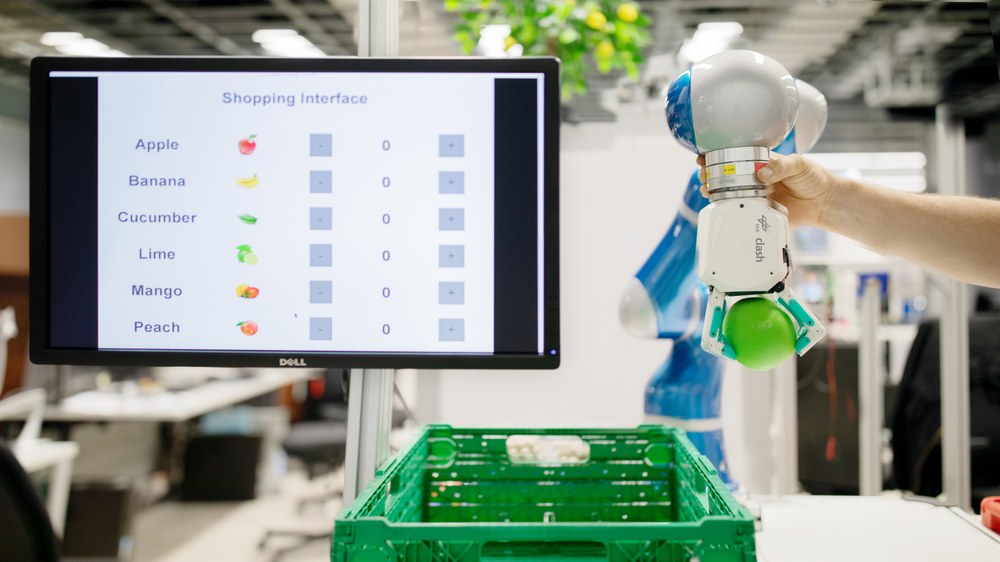EU project SOMA achieves important breakthroughs in sensitive robot manipulation
As part of the EU-wide SOMA project, staff of the Institute of Robotics and Mechatronics have made significant progress in the sensitive gripping ability of robots.
SOMA was launched in 2015 with the goal of improving state-of-the-art robot manipulation capabilities for industry. Completed in late May, the project made a number of scientific breakthroughs in the ability to grasp and manipulate undefined objects such as fruits or vegetables with robotic hands.
The traditional approach of robot gripping and in-hand manipulation uses rigid hands and regards the object’s surroundings as an obstacle. Development focused on exploring ways to grasp an object without coming into contact with its surroundings.
The SOMA project, by contrast, uses soft hands that can easily adapt to the shape of the object and use the physical constraints of the environment as manipulation control options. This fundamental modification in the approach was inspired by the way humans use their hands.
Werner Friedl explains, “We humans, for example, use the object we wish to grasp and glide along it with our fingers to get the best possible fit. We also often use the environment as aids, like the table as a surface for the fingertips to slide over to grab small, low objects as close as possible to the surface. The goal behind the development of the DLR CLASH (Compliant Low-cost Antagonistic Servo Hand) was to build a system that could use the traditional approach, but was also passively soft enough to test new approaches in soft robotics. To achieve this goal, the hand can adjust its passive resilience.”
“We are particularly pleased to have won the DLR’s 2018 IDEA AWARD with the idea behind SOMA. The theme of the DLR IDEA AWARD was Smart Farming, and CLASH might harvest fruits and vegetables in the future.”
The SOMA consortium consists of world-renowned researchers, academics and scientists. In addition to the German Aerospace Center (DLR), collaborators are staff from the Technische Universität Berlin, Ocado, the University of Pisa, the IIT – Istituto Italiano di Tecnologia, and the Institute of Science and Technology Austria. Horizon 2020 is the EU’s biggest research and innovation program to date.


